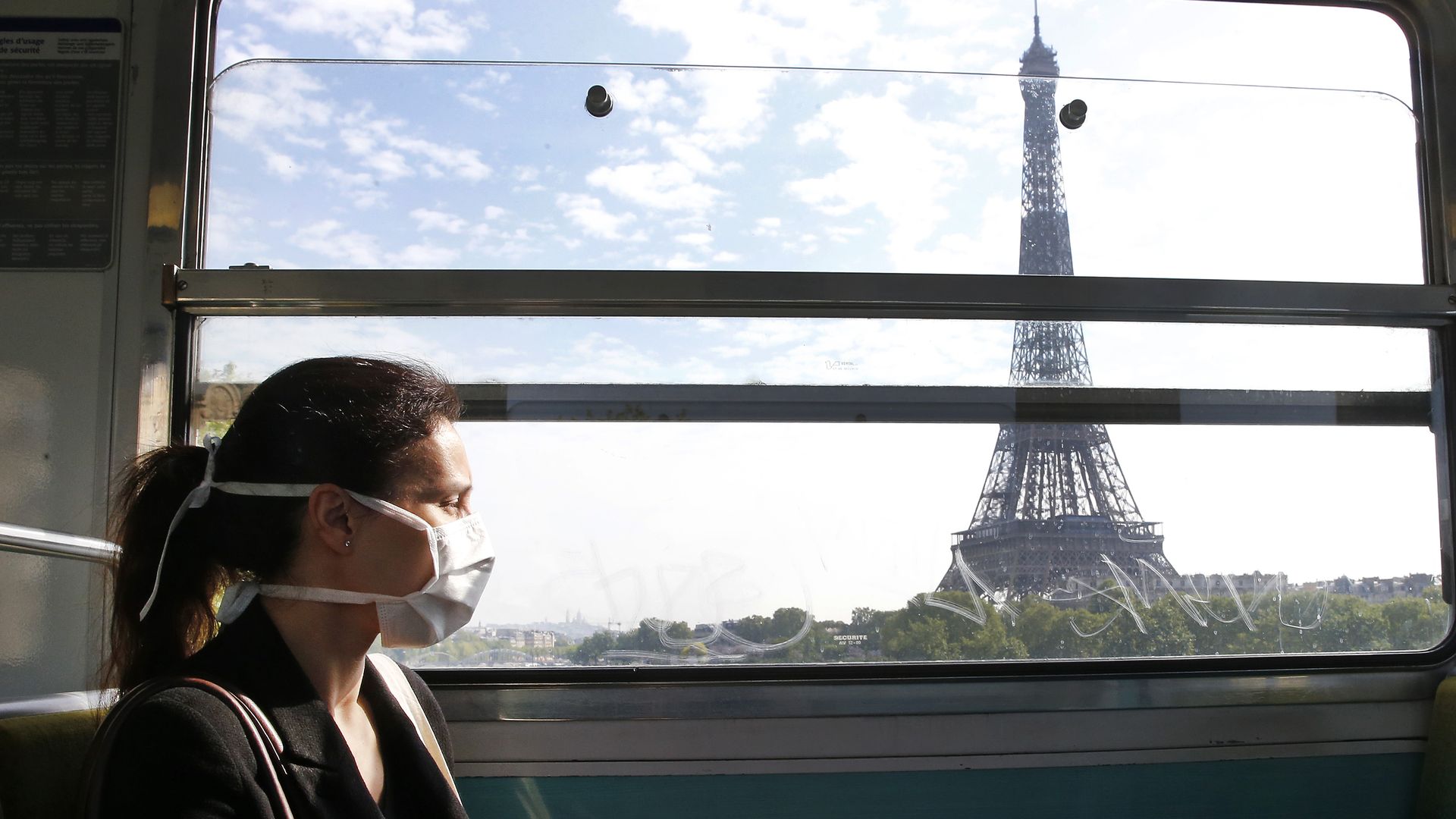Apr 24, 2020 - World
Europe's push to lessen public transit crowds may outlast coronavirus
Add Axios as your preferred source to
see more of our stories on Google.

A passenger wearing a protective face mask in a subway train as she passes the Eiffel Tower on April 24, 2020 in Paris, France. Photo: Chesnot/Getty Images
